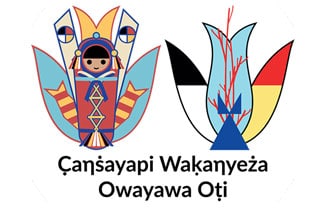Haƞ Tatanka Classroom,
We were notified at CWOO of a lab confirmed case of COVID-19 (novel coronavirus) within a classmate’s household in the Tatanka Room.
Close Contacts of Positive COVID-19 Case:
We have worked with the Lower Sioux Emergency Operation Center and the Community Contact Tracer to identify those who had close contact (were within 6ft of the individual for a total time of 15 minutes or longer) with the case and have communicated with them individually. At this time, no students in the Tatanka Room are required to quarantine, except the individual with a confirmed case within the household.
Other Individuals at CWOO:
The risk of exposure for other individuals present in the building on that date is no greater than the risk of contracting the virus in the general community. If you or your child were not personally contacted that you had close contact with the person, you should still monitor for symptoms of illness, but do not need to stay home unless symptoms develop. If symptoms develop, stay home and consult with your health care provider to determine if medical evaluation is needed.
We have taken action to clean and sanitize the classroom and facility and are working closely with the Lower Sioux Emergency Operation Center and the Community Contact Tracer to monitor the situation. To minimize further exposure, we continue to recommend implementation of the following strategies:
- Stay at least 6 feet from other people. Do not gather in groups and stay out of crowded places. If attending meetings, maintain sufficient spacing in conference rooms.
- Cover your mouth and nose with a mask when in the Community. The Lower Sioux Indian Community (LSIC) effective August 12, 2021 has reinstated that all LSIC employees and guests must wear a mask. This includes all CWOO employees and adult visitors.
- Wash your hands often, especially when in public places. As an alternative, use hand sanitizer that contains at least 60% alcohol.
- Stay home if you are sick. Be alert for symptoms, which can include cough, shortness of breath, fever, and loss of taste or smell. Other less common symptoms include chills, headache, muscle pain, sore throat, extreme fatigue feeling very tired, nasal congestion/stuffy or runny nose, and gastrointestinal symptoms like nausea, vomiting, or diarrhea.
- If your age or underlying medical conditions put you at higher risk for severe illness from COVID-19, follow the CDC’s guidance for People Who Need Extra Precautions.
- Visit the Protecting Yourself and Your Family page of the MDH website to learn more.
What to do if you may be infected with COVID-19:
Symptoms of COVID-19 can include fever, cough, and shortness of breath, or loss of taste or smell. Other less common symptoms include chills, headache, muscle pain, sore throat, extreme fatigue feeling very tired, nasal congestion/stuffy or runny nose, and gastrointestinal symptoms like nausea, vomiting, or diarrhea. These symptoms may appear 2-14 days after you are exposed to the virus that causes COVID-19. Not everyone with COVID-19 has all these symptoms, and some people may not have any symptoms. Talk to your health care provider if you have questions or concerns about symptoms.
Resources that you may find valuable are:
MDH Coronavirus: https://www.health.state.mn.us/diseases/coronavirus/index.html
CDC Coronavirus: https://www.cdc.gov/coronavirus/2019-ncov/index.html
This is a challenging time and I know many of you may be feeling stress or anxiety. We will get through this together as a community and will be stronger when we emerge.
If you have any questions, please feel free to contact the Emergency Operations Center at 320-522-0216 or CWOO at 507-697-8255.
Thank you for helping to keep our school community safe.
Sincerely,
Vanessa Goodthunder
Director
